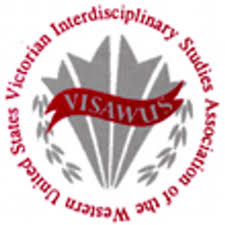 VSAWC/VISAWUS 2017
VSAWC/VISAWUS 2017
Joint Conference: “Victorian Education” & Publication Workshop
Vancouver, British Columbia
Conference: 28-29 April 2017
Publication Workshop: 27 & 30 April 2017
The Victorian Studies Association of Western Canada and the Victorian Interdisciplinary Studies Association of the Western United States invite proposals for their 2017 joint conference, “Victorian Education.” The conference will explore Victorian concepts, theories, and expressions of education, teaching, and learning. The organisers welcome papers that examine the Victorian interest in education and its relationship with widespread concerns about personal development, progress, and improvement at the individual, spiritual, and national levels. They also invite proposals for papers, panels, or workshops that explore the teaching of Victorian literature and culture in today’s college and university environments. The conference will also include a publication workshop for graduate students and junior scholars.
Conference CFP: Please send 250-word abstracts with titles plus a separate 75-word biographical statement to Dr. Heather McAlpine and Dr. Ryan Stephenson (victorianeducation17@gmail.com) by 26 September 2016. Please visit http://web.uvic.ca/vsawc/vsawcconferences/2017-vsawc-visawus/ for more information.
Publication workshop CFP: Please send your paper title plus a separate 75-word biographical statement and CV to Lisa Surridge (lsurridg@uvic.ca) by 26 September 2016. Participants will submit 20–25-page essays one week before the first workshop day. Workshop participants need not present a conference paper.
Possible topics for discussion might include:
Topics for discussion on the current teaching of Victorian literature and culture might include:
The conference organizing committee welcomes papers from scholars working in different disciplines and employing varied methodologies (history, art history, architecture, music, theatre, literary studies, popular culture, digital humanities, media history/archaeology, disability studies, affect theory, postcolonialism, critical race theory, phenomenology, gender studies, and queer theory). They also encourage would-be participants to propose panels of three papers on related themes.
As well, the conference will once again feature at no additional cost VSAWC’s highly successful Publication Workshop for Emergent Scholars. This two-day intensive workshop, scheduled for 27 and 30 April and bracketing the main conference, will be led by Victorian Review coeditors Lisa Surridge and Mary Elizabeth Leighton. Graduate students and junior faculty are warmly invited to this two-day hands-on workshop designed to hone a scholarly paper to publication standard. The workshop will start on the morning of 27 April with a three-hour interactive presentation on “How to Get Published: Ten Tips from Two Editors.” Participants will meet individually during the afternoon of 27 April with workshop leaders to receive feedback on their paper and then will be free to attend the regular conference. The conference will be followed on 30 April by a three-hour writing workshop in which participants will apply the knowledge gained during the presentation and feedback sessions, revise their introductions, and share results. Please note that those who have not taken the workshop before will be given priority in registration.